Lady Gaga: The Star of the Screen
After staking her claim in the music industry, Lady Gaga has made her debut on the big screen, starring in A Star is Born and captivating audiences with her performance.
Bridging the divide between the world of music and Hollywood has been a tale well told, with various protagonists. Some — the Justin Timberlakes and Jennifer Lopezes of this world — have made the segue between the two industries look almost effortless. Others, regardless of the heights their musical careers have hit, have been less fortunate, as Rihanna, Mariah Carey and Madonna can attest.
The latest star to make the attempt owes much to the latter “Queen of Pop.” Early reviews, however, point to a potential big-screen debut that far outshines Madonna’s own (a 1985 indie flick entitled A Certain Sacrifice that its lead tried unsuccessfully to get banned from release). On the face of it, Stefani Germanotta, who entered the national consciousness as the meat-wearing, conservative-scaring Lady Gaga, first made the move to on-screen entertainer with her 2015 turn as The Countess in Ryan Murphy’s American Horror Story: Hotel. But behind the scenes, the journey started far earlier in Germanotta’s career.
Six Grammy Awards, three Brit Awards and several bestselling singles behind her, and Germanotta’s stint as “Gaga” can be characterized as nothing less than an astonishing success. With her on-stage theatrics, wild costumes and exuberant persona, the pop phenomenon has developed a legion of quasi-fanatical fans and a penchant for staging memorable red-carpet moments. In many ways, she has been the archetypal pop star of her era — a talented singer-songwriter, who seemed to revel in the performative nature of the world of show business.
As recently as 2014, however, a noticeable change overcame Gaga — and the public began, bit by bit, to see the real Germanotta come to the fore. That year saw the release of her album Artpop, which was perhaps the least well-received of her straight pop Lady Gaga albums since her earliest recordings. The subsequent recording, Joanne, dropped in 2016. Named after a maternal aunt, this album encapsulated the modern era of Gaga/Germanotta; it stripped back the oversized hairdos and outrageous outfits to give fans a glimpse of the woman behind the star.
It is arguably in this contemporary, soul-baring example of the once-alien pop superstar that the basis for her character, Ally, in Bradley Cooper’s directorial debut A Star is Born — which premiered to rave reviews at this year’s Venice Film Festival and is already incubating early Oscar buzz — was drawn.
Q: Did you feel a lot of pressure taking on this kind of a major role and having to carry a film of this scope?
A: I was nervous, especially at the beginning, and of course you feel the pressure of living up to expectations when the stakes are pretty high, not just for yourself but for everyone involved. This was the first time I had to play in a film from beginning to end and I was scared … But, as Bradley says to me in the film, “All you got to do is trust me.” I did that every day, and it took the nerves away.
You have this feeling that comes from [the belief] that when an artist is moving into a new medium, if they have been studying and gestating like a petri dish for so long, it’s like an explosion when they finally come out.
Q: Is the experience of working on a big film like this and seeing yourself on the big screen very different from the experience that came with your work in the TV series American Horror Story?
A: Yes, it’s different, and you feel very vulnerable because you see everything and your face is so big and your body is so big, it’s larger than life. It was very different from watching myself on American Horror Story on the small screen.
It was overwhelming and emotional, but I just feel so incredibly grateful, because I have such an incredible man [Bradley Cooper] by my side, a companion, a friend, an incredible film director, an incredible actor.
And I feel like from the moment the film starts, it’s just so clear that he is a rock star and he is the real deal. And I remember at one point we were talking, and we said something like, in the first 10 minutes of the movie, we need to buy into the fact that he’s a musician and I’m an actress, and that has to happen within the first 10 minutes of the film for it to work.
Q: Clearly, a story like this resonates with most aspiring singers or actors. How did you feel when you were an aspiring performer?
A: When I was a young girl in New York, I had a dream of being an actress one day. But I didn’t make it as an actress, so I decided to go for it as a musician. To know that this film moves people moves my heart as well … I’m humble and grateful to be here.
Q: Much of this story’s power comes from [the] ordeal that many performers face in trying to become successful and achieve recognition.
A: I heard the word “No” a lot earlier in my career, but I never gave up. That’s the biggest difference between me and Ally. Ally has completely given up and she does not believe in herself. She does not believe she’s beautiful and she does not believe she has what it takes.
When I was 19 years old, I told my parents I was dropping out of school and I was dragging my piano around New York City, banging on doors so that I could perform. I already knew then that I would be Lady Gaga. I was even lying, pretending to be my own manager, so I could get the 10 p.m. slot when there would be the most people [possible] at the club. But that’s not Ally.
We did a lot of harmonizing, and there was something that just clicked when we were singing together
Q: How did it feel to have Bradley Cooper want you to be in this film and how much he believed in you?
A: This was just such a tremendous honour for me to be in this film … I thought to myself, “My gosh, I can’t believe he wants it to be me.” And I am just so honoured that I got to be in this film. He is a tremendous director, tremendous, completely focused on set, such a visionary, so inspiring, so passionate and yet so free and so sacred that these scenes that we did together and we did separately, the ones I got to watch, it was one of the most fulfilling artistic experiences of my life, if not the most.
Q: Did you have to audition for the role?
A: Yeah. Bradley came to my house, and we shot scenes from the film there as a test. We spent the whole day working, and what was really surprising for me is when I heard Bradley sing. I couldn’t believe how good he was because I never ever knew that he sang. We did a lot of harmonizing, and there was something that just clicked when we were singing together.
It was an incredible experience, and I kind of knew from that we would work well together and we did. We’ve become good friends and we talk a lot about fame and dealing with everything that comes with it. I still struggle with it and I don’t know if that will ever change, and it’s good to have someone to be able to discuss all that with whom you know and trust, because you can feel very isolated in this business.
Q: Why is fame so unsettling for you?
A: Fame is a very unnatural thing. If you’re an artist, you have this intense relationship with your work, and that’s what underlies everything. Then if you reach a certain point, everything changes around you and it’s not you who’s really changing, it’s more the people around you. I think artists need help in adjusting to that because that’s often the biggest struggle you face while you’re trying to keep evolving, not just in terms of your work but as an individual.
Q: Was the way Bradley Cooper worked with you on this film in some respects similar to the process where his character inspired Ally?
A: The way I would describe our work together is, it’s like when you go into a lake or a swimming pool and you don’t know how to swim. If there’s someone close to you who knows how to do it and is also very good at it, the fear disappears and you’re able to learn from that person.
Q: What was the first day of shooting like?
A: That was probably the hardest moment … I had memorized my lines, and we sat down. And Bradley said something off-script to me, and I just said the line that I had memorized.
And then he said something else to me, and I kept repeating that same line over and over again because I didn’t know what to do. And he said to me, “Are you OK? Do you feel like you need to cry?” And then I cried for a second, and then I just threw the lines out the window. I still had them with me, but I was able to be in a more present conversation with him.
It really taught me something about being an actor: you have to know the story that you’re going to tell, and you have to know the lines. But at the end of the day, you have to be as honest as possible in the moment.
Q: During the initial stages of your music career, were there any key moments where you recognized certain elements of yourself in Ally or where you had to stand up for yourself and stick to your principles?
A: Once I had a record executive suggest that I get a nose job before my first single came out and before we shot the video. But I said no. They also wanted to give my songs to other girls or girl groups. They didn’t want it to be me. I just held on to my music for dear life. I never wanted to be as sexy as other performers. Not even when I started. I knew I wanted to be like myself and no one else.
Q: You’ve spoken many times throughout your career about the downside of fame and how it has affected you. What is the worst thing about the constant attention that surrounds you?
A: It is extremely isolating. The thing I like least about it is that I no longer have real human experiences in society when I go out into the world. Whether I’m in a bar, a club, a restaurant or a bookstore — I simply cannot have a normal conversation with someone I happen to meet.
I really love people, they inspire me. And when I’m working on my music, I always try to feel what it is that really moves people. But the more famous I become, the more difficult it’s been to hold on to this feeling because I no longer get to meet people [in a
normal way].
Q: How have you tried to use your name and the recognition you have and turn that into a positive experience for yourself?
A: When you become famous, you become very much aware of how you can influence people and that can be a huge responsibility. That led me to decide that I would try to be as honest as possible in how I related to the public. I decided that I would use my celebrity to help convey certain messages that were important to me.
Because I’ve experienced great loneliness in my life, I’ve wanted to reach out to other people who also feel lonely and feel that they have no one who loves them or they feel close to. It’s important to show that we all go through similar experiences and difficult times in our lives. And I have always felt close to those who feel different and alone as I have for much of my life.
Q: You seem to be more relaxed these days than ever before. Have you come to terms with fame?
A: I’ve accepted it for what it is. Before, when I went to a supermarket and there were paparazzi everywhere, I would get panic attacks and I would be crying. I couldn’t even get out of my car.
Then I would go to bed at night thinking, “My life is over.” But now I think, “F*** it. This is just the way it is — this is my life.” So fame definitely has a price. But I’m very grateful for everything and I try not to give up. I try not to limit myself and deprive myself of my creativity and my dreams. I have to go on.
Q: Do you worry about how the public perceives you?
A: I want people to feel they know me and see me behind the outfits I choose, which are a form of creative expression. Some of my image choices have been interpreted as a pose, and there are many celebrities — actors, singers, entertainers — who do put on airs and pose in public.
But that was never my intention, and it’s never been true in my case. The outfits I wear are my way of expressing myself. It’s part of my creative self and being an artist.
Q: You have great empathy for people, especially people who are suffering. If you had three wishes, what would you wish for in terms of wanting to help people have a better or happier life?
A: I would wish for an end to the violence in the world. I would like to encourage people to focus more on personal connections and put their smartphones away. And I would wish for a world in which no child is hungry, ill, left behind or [without] help.
We’re always being pulled in different directions, but in the end we all have to make our own decisions and be true to who we are and who we want to be
Q: Do you enjoy being able to connect to your fans on a personal level?
A: I need to be as honest and authentic as possible and try to talk about bullying and helping people who feel alone and different. I’ve experienced what it means to feel very alone and so I feel very close to people who have also suffered from that.
I’ve always wanted to help people deal with that — that’s my nature. It’s also been important to me to have received a lot of feedback from fans around the world who have written to me or spoken to me about their experiences.
Q: Are you going to continue being very active in reaching out to people and talking about issues that matter to you?
A: I think artists should use our voices to help make the world a better place. I’m a dreamer, and we have so much potential to accomplish a lot of good things. I believe in that. I also believe in helping young people appreciate that you have the right to choose what you want to do with your life and to make your way in the world, according to your own beliefs and instincts. We’re always being pulled in different directions, but in the end we all have to make our own decisions and be true to who we are and who we want to be.
Q: Do you feel like a renaissance woman? Dancing, acting, performing, film, TV, music?
A: I’ve always felt that way about myself inside. It’s always been so important to me that if I ever were to make a move in television or as an actress, that it would never feel like a move, and that nobody would ever go, “Oh, here she is trying to become an actress and put out a clothing line and own a record label.” That’s the thing that everyone expects of me, right, like it’s time for my empire or whatever. I don’t give a f*** about that. It is completely unfulfilling to me, it does nothing for my soul. What I did want was to be taken seriously as an actress, who went to [The Lee] Strasberg [Theatre & Film] Institute for almost 10 years. Since I was 11 years old, I’ve studied method acting. So, I’ve always been this way. It’s been the public that has told me, “You’re a pop star, that’s what you do,” and if I do anything against that, like Artpop, they go, “Whoa, what’s this? This is too art.”
But I’ve always been a performance artist. It’s just about what rises to the top and what the press chooses to highlight and say about artists. In a lot of ways, you are all responsible for the way the world views and accepts art, so I can only ask you to open and broaden that for everyone. I’m grateful that I’ve earned it now. I feel or I hope.
You asked me if I’m a renaissance woman? One hundred per cent, but I am one because I earned it over time and I fought for it to be something that people knew is authentic. But it’s very hard, especially for females. In pop music, if you give them anything except for a dance performance or a No. 1 record, they don’t understand it. It’s like I’m supposed to provide something that actually I don’t agree with at all. I think art is about what you can get away with. That’s what Andy Warhol used to say.
@ladygaga
www.astarisbornmovie.net
Written By Jan Janssen
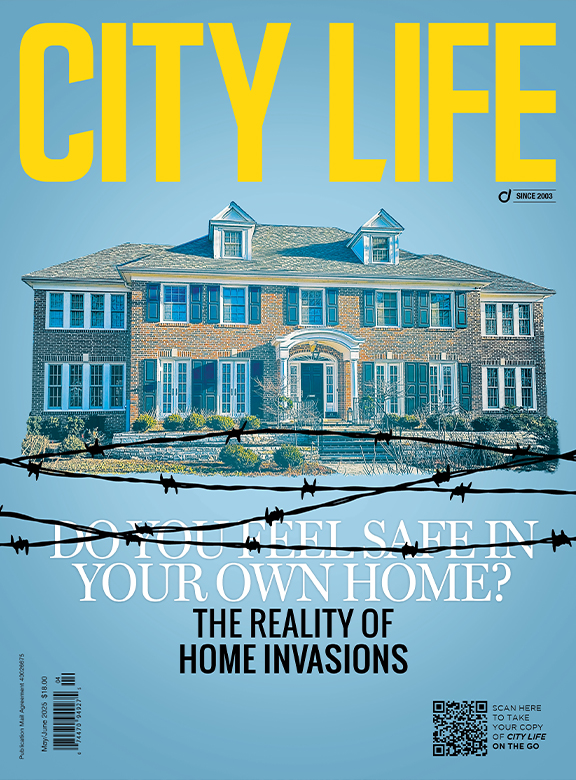






































































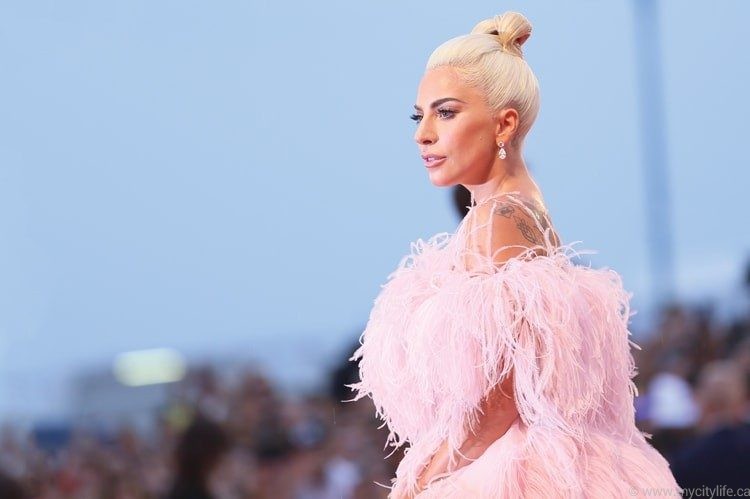
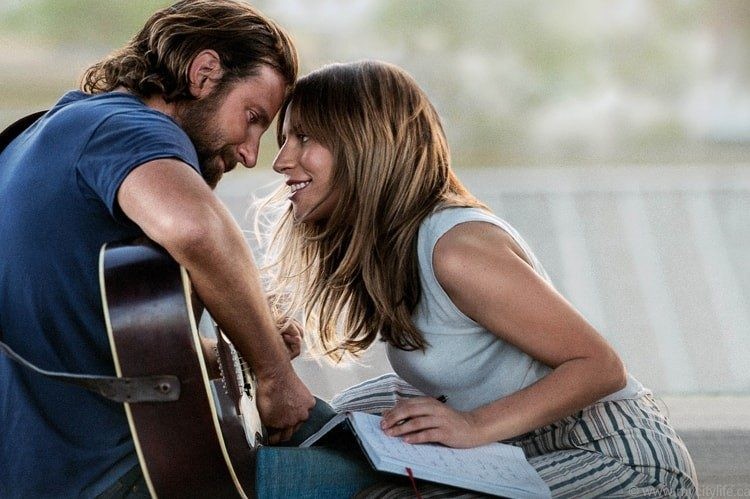
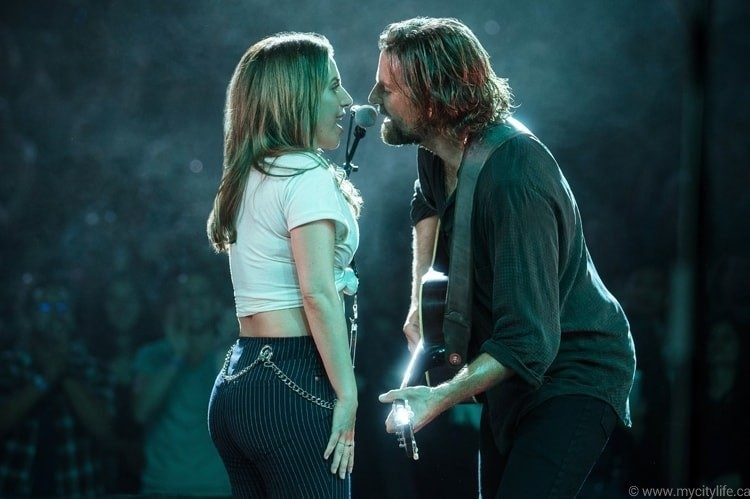
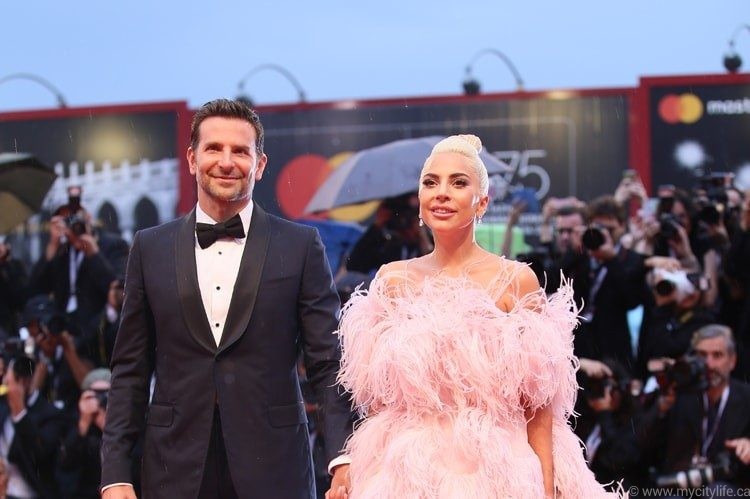
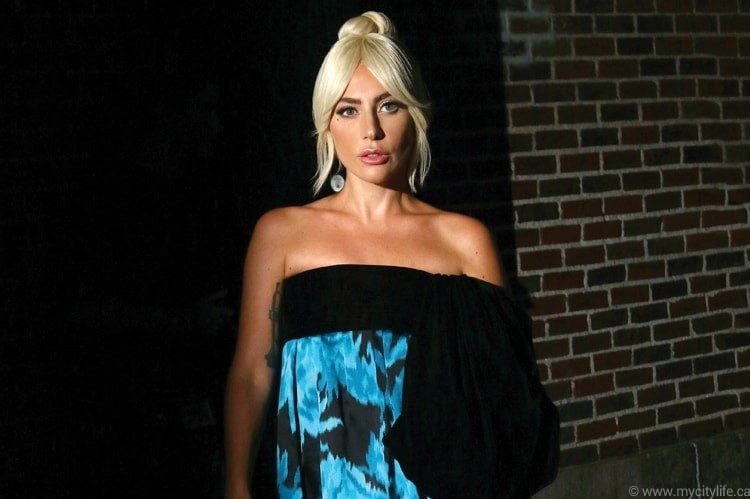
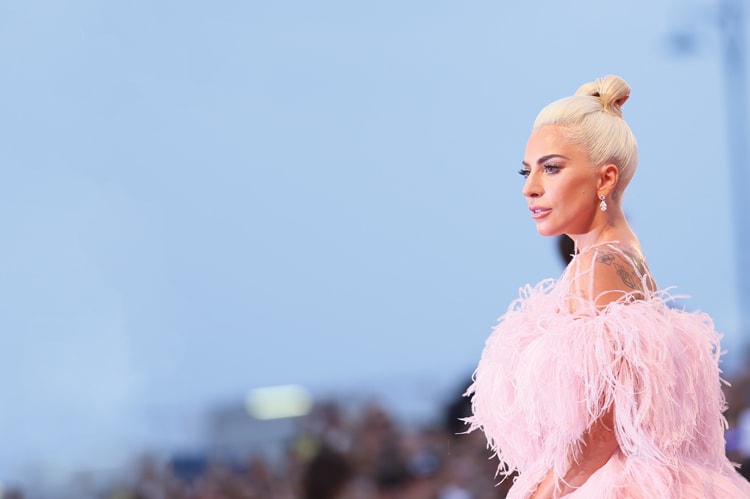


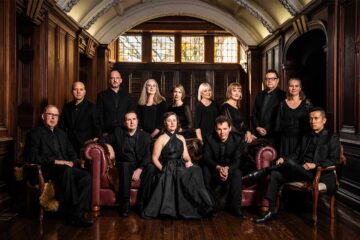
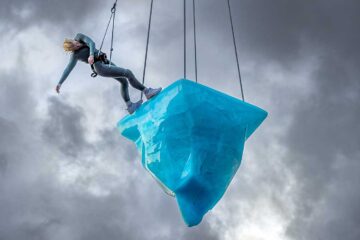
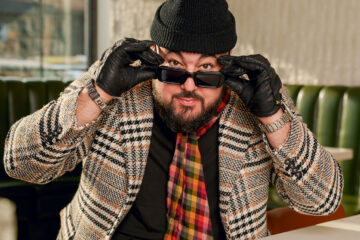
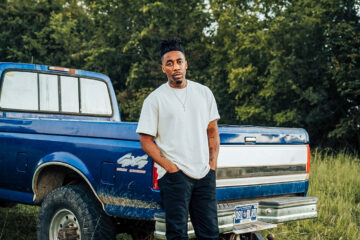
No Comment